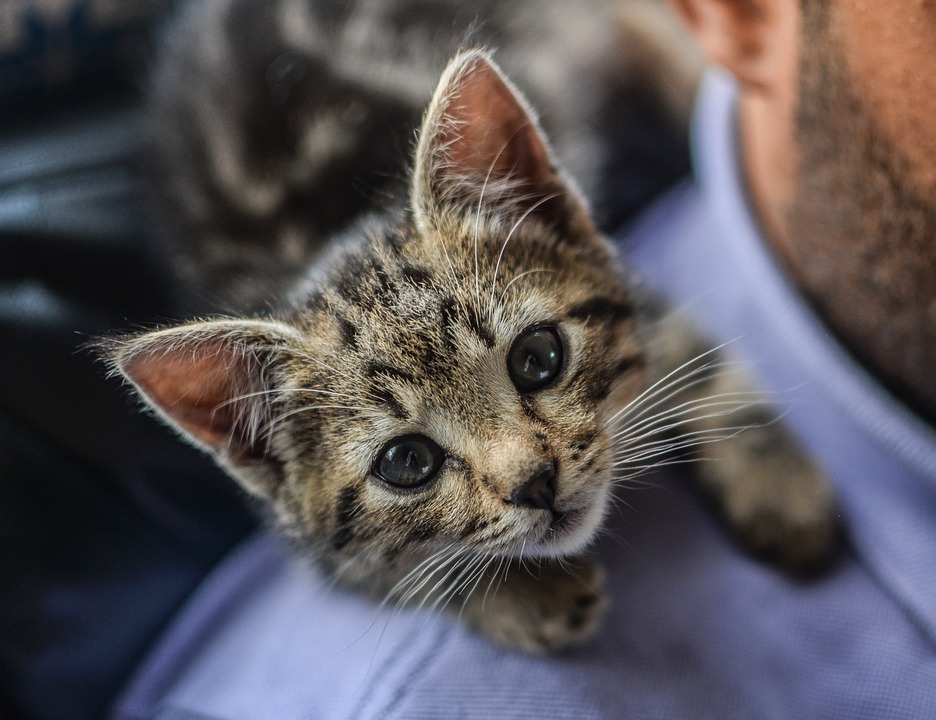
Welcoming a new kitten into your home is a joyous occasion that brings both excitement and responsibility. One of the most crucial steps in raising a well-adjusted and confident cat is proper socialization. Socializing your kitten not only helps them develop into a friendly and approachable adult cat but also prevents behavioral issues that may arise from fear and anxiety. In this article, we’ll explore the importance of socialization, provide insights into the socialization process, and offer practical advice for both new and experienced cat owners.
Understanding Kitten Socialization
Kitten socialization is the process of exposing your feline companion to a variety of experiences, environments, people, and other animals in a positive and controlled manner. The prime window for socialization is between the ages of 2 and 9 weeks. During this period, kittens are particularly receptive to new experiences, and proper socialization can have lifelong effects on their behavior and temperament.
Benefits of Socializing Your Kitten
1. Reduced Fear and Anxiety
Socialized kittens tend to be more confident and less fearful. They are more adaptable to changes in their environment and are less likely to develop anxiety-related behaviors such as hiding, aggression, or excessive vocalization.
2. Enhanced Bonding
Socialization helps build a strong bond between you and your kitten. By spending quality time together and exposing them to various stimuli, you establish trust and create positive associations with human interaction.
3. Improved Manners and Behavior
Kittens that are well-socialized are generally better behaved. They learn appropriate ways to interact with humans and other animals, reducing the likelihood of biting, scratching, or other unwanted behaviors.
4. Easier Veterinary Visits
A socialized kitten is more likely to handle veterinary visits with ease. They are accustomed to being handled and exposed to new environments, which can make medical check-ups less stressful for both the kitten and the veterinarian.
Key Socialization Experiences
1. Human Interaction
Introduce your kitten to a variety of people, including children and adults, to ensure they become comfortable around humans. Encourage gentle handling and positive interactions by using treats and praise.
2. Handling and Touch
Get your kitten accustomed to being touched, picked up, and handled. Regularly check their paws, ears, and mouth to make future grooming and medical procedures more manageable.
3. Exposure to Different Environments
Gradually introduce your kitten to different areas of your home and, if safe, the outdoors. This broadens their comfort zone and helps them become adaptable to new surroundings.
4. Interaction with Other Animals
Socializing your kitten with other animals is crucial, especially if you have other pets. Supervised interactions can help kittens learn to communicate and play without aggression.
Practical Socialization Tips
1. Start Early
The earlier you begin socializing your kitten, the better. Remember that the socialization window is most effective between 2 and 9 weeks, but experiences beyond this period are still beneficial.
2. Use Positive Reinforcement
Always use positive reinforcement when socializing your kitten. Treats, toys, and praise can help create positive associations with new experiences, making your kitten more willing to explore and interact.
3. Be Patient and Consistent
Patience is key when socializing a kitten. Every kitten is unique, and some may take longer to adjust to new experiences. Consistent exposure, without forcing interactions, will help them feel more secure.
4. Monitor Stress Levels
Pay attention to your kitten’s body language and stress signals. If they seem overwhelmed, give them space and time to relax. Gradual exposure is more effective than overwhelming them with too much at once.
Dealing with Challenges
1. Fearful Kittens
If your kitten is particularly fearful, proceed slowly and gently. Start with less intimidating experiences and gradually work your way up. Consider consulting a professional behaviorist if needed.
2. Aggression Issues
Kittens may exhibit aggression due to fear or overstimulation. Redirect aggressive behavior with toys and provide plenty of opportunities for play to channel their energy constructively.
3. Health Considerations
Ensure your kitten is healthy before exposing them to new environments or other animals. Consult your veterinarian for vaccinations and health checks before beginning the socialization process.
Long-Term Impact of Socialization
Properly socialized kittens grow into well-rounded adult cats that are a joy to have as companions. They are more likely to adapt to life’s changes, such as moving to a new home or introducing a new family member. Socialization lays the foundation for a harmonious relationship between you and your cat, ensuring they feel secure and content in their environment.
Conclusion
Socializing your kitten is an investment in their future well-being and happiness. By exposing them to a variety of experiences, environments, and interactions, you are setting the stage for a confident and well-adjusted adult cat. Whether you are a new or experienced cat owner, taking the time to properly socialize your kitten will lead to a lifetime of companionship and joy.
Remember, every kitten is unique, and their socialization journey will be their own. With patience, consistency, and love, you can help your kitten become a confident and cherished member of your family.
#ChatGPT assisted in the creation of this article.








